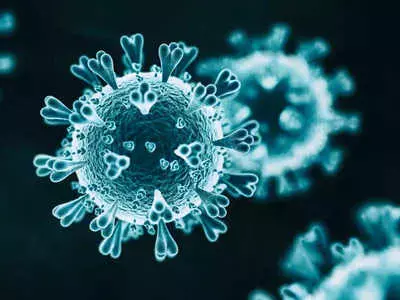- Home
- Medical news & Guidelines
- Anesthesiology
- Cardiology and CTVS
- Critical Care
- Dentistry
- Dermatology
- Diabetes and Endocrinology
- ENT
- Gastroenterology
- Medicine
- Nephrology
- Neurology
- Obstretics-Gynaecology
- Oncology
- Ophthalmology
- Orthopaedics
- Pediatrics-Neonatology
- Psychiatry
- Pulmonology
- Radiology
- Surgery
- Urology
- Laboratory Medicine
- Diet
- Nursing
- Paramedical
- Physiotherapy
- Health news
- Fact Check
- Bone Health Fact Check
- Brain Health Fact Check
- Cancer Related Fact Check
- Child Care Fact Check
- Dental and oral health fact check
- Diabetes and metabolic health fact check
- Diet and Nutrition Fact Check
- Eye and ENT Care Fact Check
- Fitness fact check
- Gut health fact check
- Heart health fact check
- Kidney health fact check
- Medical education fact check
- Men's health fact check
- Respiratory fact check
- Skin and hair care fact check
- Vaccine and Immunization fact check
- Women's health fact check
- AYUSH
- State News
- Andaman and Nicobar Islands
- Andhra Pradesh
- Arunachal Pradesh
- Assam
- Bihar
- Chandigarh
- Chattisgarh
- Dadra and Nagar Haveli
- Daman and Diu
- Delhi
- Goa
- Gujarat
- Haryana
- Himachal Pradesh
- Jammu & Kashmir
- Jharkhand
- Karnataka
- Kerala
- Ladakh
- Lakshadweep
- Madhya Pradesh
- Maharashtra
- Manipur
- Meghalaya
- Mizoram
- Nagaland
- Odisha
- Puducherry
- Punjab
- Rajasthan
- Sikkim
- Tamil Nadu
- Telangana
- Tripura
- Uttar Pradesh
- Uttrakhand
- West Bengal
- Medical Education
- Industry
Renin-angiotensin-system inhibitors in COVID-19:To be continued or not?

SARS-CoV-2 enters human cells through angiotensin-converting enzyme 2 (ACE2), which plays an important role in the renin–angiotensin system. The expression of ACE2 in multiple organs could possibly explain systemic nature of the disease.
Experimental findings showed that pharmacological RAS inhibition might increase ACE2 expression in organs. Mechanistic considerations suggested that previous treatment with angiotensin-converting enzyme inhibitors (ACEIs) and angiotensin II receptor blockers (ARBs) might promote disease progression in COVID-19. Observational studies showed lack of association between RAS inhibitors and the risk of SARS-CoV-2 infection or the severity of COVID-19. However, being non-randomised design it might be source of bias and confounding.
Michael Schreinlechner et,al. conducted a multicenter randomized controlled trial(involving 35 centers) in Austria and Germany- the ACEI-COVID study , testing the hypothesis that patients with recent symptomatic SARS-CoV-2 infection benefit from discontinuing chronic RAS inhibition.
Eligible patients were aged 18 years or older, had a recent symptomatic SARS-CoV-2 infection confirmed by a positive RT-PCR test result within the last 5 days, were on chronic treatment with ACEIs or ARBs for any indication for treatment of arterial hypertension, diabetes, heart failure, or coronary artery disease for at least 1 month before study inclusion, and were in stable haemodynamic conditions.
A total of 204 patients were randomly assigned in 1:1 ratio to either group.The primary outcome measure was the composite of the maximum sequential organ failure assessment (SOFA) score and death within 30 days.Secondary endpoints were area under the death-adjusted SOFA score (AUCSOFA), mean SOFA score, admission to the intensive care unit, mechanical ventilation, and death.
Within 30 days, 8 of 104 died in the discontinuation group and 12 of 100 patients died in the continuation group. There was no significant difference in the primary endpoint between the discontinuation and continuation group.
Discontinuation was associated with a significantly lower, mean SOFA score, and 30-day SOFA score. At 30 days, 11 in the discontinuation group and 23 in the continuation group had signs of organ dysfunction or were dead which is statistically significant. There were no significant differences for mechanical ventilation and admission to intensive care unit between the discontinuation and continuation group. However subgroup analysis showed that male patients with obstructive lung disease might benefit from discontinuation of ACEI–ARB therapy.
Authors concluded that "discontinuation of RAS-inhibition in COVID-19 had no significant effect on the maximum severity of COVID-19 but may lead to a faster and better recovery". The decision to continue or discontinue should be made on case to case basis considering factors such as the strength of indication for RAS inhibition, the availability of appropriate replacement medication, and the monitoring capability.
Existing evidence:
BRACE CORONA and REPLACE COVID, two randomised trials have shown no net effect of discontinuation. At the same time, temporary discontinuation of RAS inhibition did not cause harm in any of the three randomised trials.
Source:
Bauer A, Schreinlechner M, Sappler N, et.al; ACEI-COVID investigators. Discontinuation versus continuation of renin-angiotensin-system inhibitors in COVID-19 (ACEI-COVID): a prospective, parallel group, randomised, controlled, open-label trial. Lancet Respir Med. 2021 Aug;9(8):863-872. doi: 10.1016/S2213-2600(21)00214-9.
MBBS, M. D. Respiratory Medicine
Dr Sravan Kumar V, completed his M. B. B. S from SRMC, Nandyal and M. D. in Respiratory Medicine from the JSS Medical College, Mysore. After completing MD. he worked as Senior resident in Kasturba Hospital, Manipal. He is actively involved in various research activities of the department. Currently he is working as senior resident in Mallareddy medical college for women, Hyderabad. He can be contacted at editorial@medicaldialogues.in.
Dr Kamal Kant Kohli-MBBS, DTCD- a chest specialist with more than 30 years of practice and a flair for writing clinical articles, Dr Kamal Kant Kohli joined Medical Dialogues as a Chief Editor of Medical News. Besides writing articles, as an editor, he proofreads and verifies all the medical content published on Medical Dialogues including those coming from journals, studies,medical conferences,guidelines etc. Email: drkohli@medicaldialogues.in. Contact no. 011-43720751


